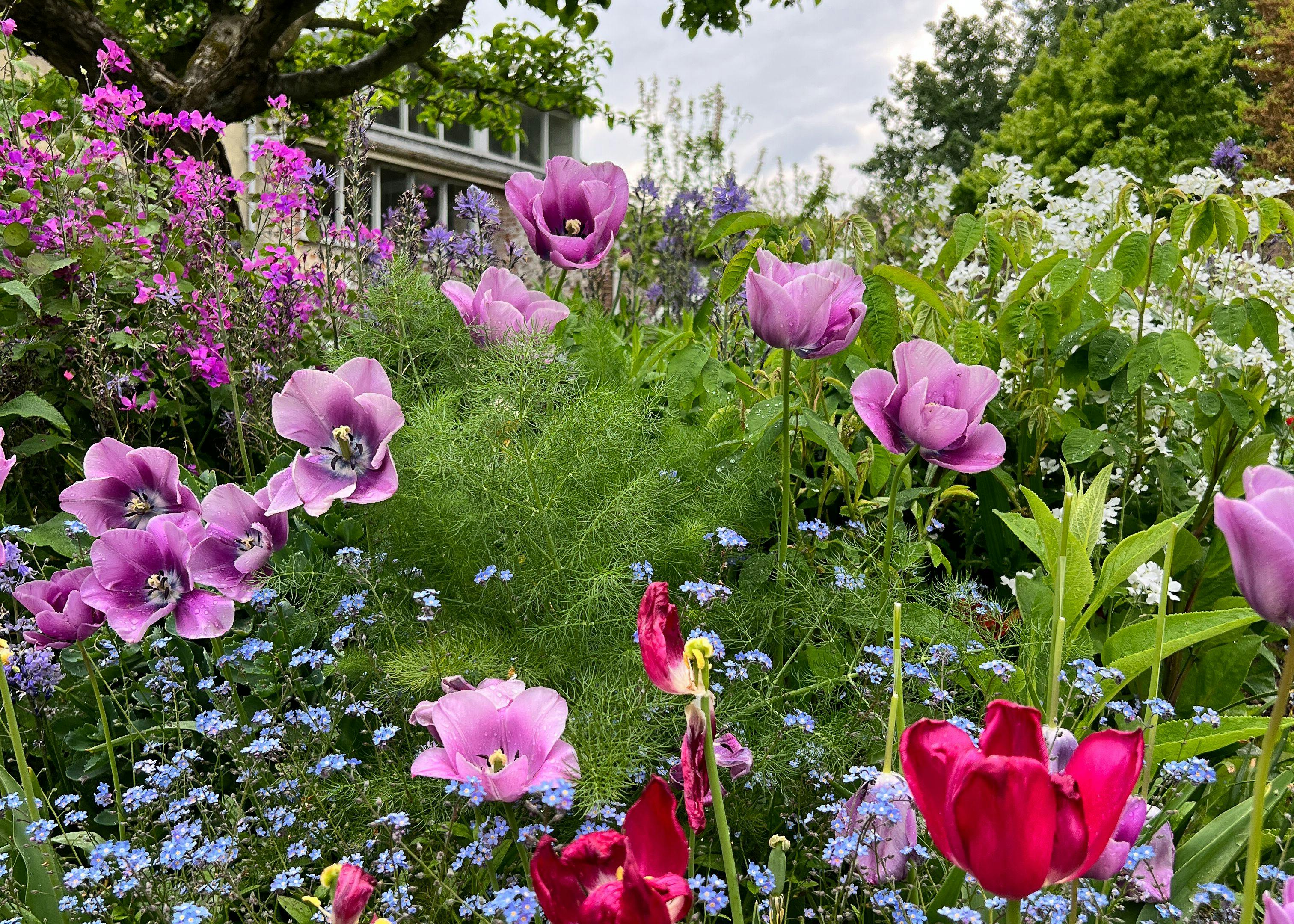
The prospect of establishing a new border is undoubtedly thrilling, but let us be honest, it can be a bit daunting too. We have all been there – the mad dash at the garden centre, dreams of lush herbaceous planting that would make your garden the envy of the neighbourhood, and then the sobering reality of garden woes; the pesky weeds, the parched plants, and those uninvited guests (balls, pets, you name it). So, put a hold on your trowels. Before you dive into the gardening frenzy, it is time to put on your thinking caps.
Different parts of your garden may have varying growing conditions. Some plants will be happier in certain spots than others. Ponder over the ideal size, shape, and placement of your garden borders, and concoct a game plan to keep the blooms coming all year round.
Ready to give your garden that long-awaited revamp? Let us dig into how to design a plant bed and garden border that will make heads turn.
Understand your Soil Type
It is a dirty affair, literally. Knowing your soil is paramount. Be it clay, sandy, chalky, or loam, plants can be sensitive to how much water they want to sit in; or if they get higher nutrient levels from chalky soil. If you are unsure of your soil type after an initial hand grasp of the earth - you can get a pH testing kit to tell you what you are working with. Knowing the soil type will avoid lots of maintenance in the future; go for plants that will thrive in your garden soil.
Evaluate Your Growing Conditions
Sun-basking or shade-loving, what are your garden bed's sunlight conditions? Knowing how much sunlight your garden borders get is vital to growing success. Remember, full sun is 6+ hours a day. And do not be disheartened if you are working with shady areas; a stunning array of shade-favouring plants will thrive and bloom within your design.
Plan the Garden Bed Size & Shape
Contemplating how to design a plant border? It’s all about that perfect curve (or line!). Whether you are going for that rustic cottage charm with curvy borders or sleek chic with rectangular beds, size and shape are crucial. Use strings or hoses to mark your design, and do not forget to plan for maintenance access.
Choose the Right Plants for Your Borders
Herbaceous planting, anyone? With your soil and sunlight homework in hand, it is time to draft your plant selection. Go for variety – think of colours, textures, and seasons. Consider what will bring pollinators, where you want scent, height and points of interest.
Define Your Garden Style
What do you want the garden bed to say about your style? Sleek and modern or wild and free? The plants should complement your garden style. There are plenty of great garden designers and plantsman that you can get inspiration from, and you can check out our inspiration guides.
Play with Plant Heights
Height matters, from towering giants to ground-covering beauties; playing with plant heights adds that oomph to your garden border and, where needed, can blend the parameters of your garden into your horizons to make it feel bigger.
Create an Engaging Layout
Time for some garden grid work. Draw out your garden bed and start to draw with coloured pencils where your plants will go. You can also cut out magazine catalogues. Arrange your plants in a way that pleases your eye. Think colour schemes, clusters, fillers, and the occasional rebel that breaks the pattern so it does not look too thought out.
Design an Immersive Backdrop
Set the stage for your plants to shine. It might be you want to paint the wall behind, add in floral climbers, or a lush green curtain, a well-thought-out backdrop makes your garden border come alive and also feels less sparse in its earlier years of growth.
How to Execute Your Garden Border Plan
When your plans are ready and you have got everything you need from plants, garden tools and biscuits for breaks. Clear your bed, prep the soil and plant. Don’t forget to mulch - it slowly releases nutrients to the soil whilst retaining water, making it easier to water in the hotter months.
When to Plant a Garden Border
Timing is everything. Spring is great, especially if your soil is heavy and prone to freezing. Autumn is also great when the soil is warm and moist, giving plants time to root in before winter.
There you have it! A guide on how to plan a garden border that will bring all the oos and ahhhs your gardening work deserves. Here’s to blooming borders and green thumbs.